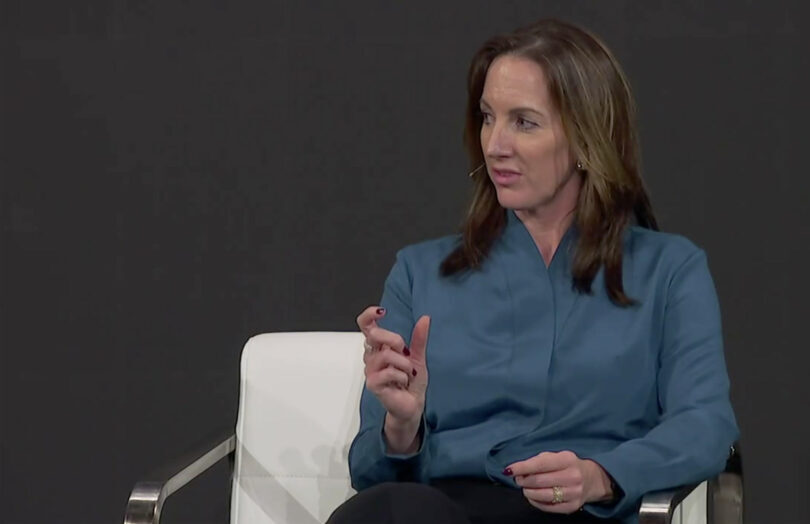Yesterday BNY’s Caroline Butler spoke about this year’s lifting of the oppressive environment surrounding the digital asset space. As BNY’s Global Head of Digital Assets, she’s calling for an expansive rethink of digital asset regulation so that blockchain and smart contracts don’t just become an incremental 20% optimization of existing infrastructure. She was talking during the Ondo Summit in New York. (There’s a transcript of the panel).
The change in environment comes with the new Trump administration that is embracing digital assets and DLT. One of the first actions of the new Acting SEC Chair was to rescind SAB 121, a move that BNY Mellon has been lobbying for since its introduction.
Now Ms Butler wants to push further. She believes that regulation needs to be reimagined around the future of capital markets, which will revolve around a wallet structure.
She said, “It shouldn’t fit the model that we have today because a wallet should hold many, many, many things. That will break the model we have today, where we have agencies that are split a little bit more by asset class. We should have kind of a use case driven regulatory regime that sits and manages and is focused on that wallet. And I think that’s the big shift.”
So far the regulatory focus has been more narrow around the technology, its risks and how to add institutional grade controls. While those foundations are critical, there are also more expansive options.
“How do we influence the right amount of creative regulatory policies that can actually look at what should be a bigger disruption and a different way of managing capital markets,” said Ms Butler.
The DTCC’s Nadine Chakar noted the need for a cultural shift within the market, given firms are split into fixed income teams and derivative teams.
Slowly, and then all at once
Axios journalist Felix Salmon observed that the discussion was about disruption, but in fact most of the services rolled out so far are incremental. He also questioned whether global regulators are going to suddenly tear down what they have in order to reconfigure around wallets.
“While we’re working with disruptive technology, I think the innovation is unfortunately going to be incremental for a period of time before it catches up and takes off,” said Ms Chakar.
Caroline Butler pointed to the evolution of capital markets in the 1970s when regulators came together and market infrastructure was built around central securities depositories.
“So it can and should happen. The speed at which it will happen obviously is what none of us can predict,” said Ms Butler.












 All while Pfizer—a company with a $2.3 billion criminal fine for fraudulent marketing, bribery, and kickbacks—was given blanket immunity from liability and billions in taxpayer dollars to produce a vaccine in record time with no long-term safety data.
All while Pfizer—a company with a $2.3 billion criminal fine for fraudulent marketing, bribery, and kickbacks—was given blanket immunity from liability and billions in taxpayer dollars to produce a vaccine in record time with no long-term safety data.
























